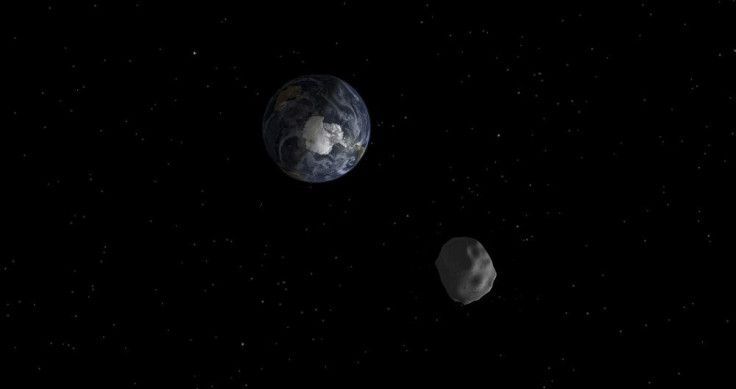University of Central Lancashire scientist warns asteroid threat during next week's blood moon is real

In December 2013, many people were waiting for 122113 to happen because of a mistaken belief that the world would end based on misinterpretation of the Mayan calendar. This September, conspiracy theorists are raising another apocalyptic warning because of the lunar phenomenon “blood moon” expected to happen between Sept 22 and 28.
The lunar event would likely be accompanied by a warning of an asteroid hit on Earth within the same period, according to the theory, which was promptly debunked by the National Aeronautics and Space Administration, or NASA.
“There are no known credible impact threats to date – only the continuous and harmless infall of meteoroids that burn up in the atmosphere,” said NASA which said in August that if a large asteroid was headed towards the planet, the agency’s Near-Earth Object Observations Program, also known as Spaceguard, would have detected it, reports Techienews.
But a scientist from the University of Central Lancashire said the asteroid threat should not be ignored. “Earth has experienced very destructive impacts in the past – just ask any dinosaur,” Burtonmail quotes Professor Robert Walsh, the university’s executive director of research and innovation.
He points out that the asteroid in estimated to be 10 kilometres across, which means its threat should be taken seriously. Walsh adds that in 2013 also, when a lorry-sized space rock exploded in the skies above Chelyabinsk, Siberia, hundreds of people were hurt.
If such an asteroid hit would be repeated in densely populated areas such as Beijing, New York or London, the devastation would be worse, says Walsh who is no nutty professor. His research expertise, according to the university, are hydrodynamic simulations of plasma flow and observations of coronal dynamics.
Walsh is also the leader of a long-term partnership between the university and NASA that resulted in space missions collaborations. In 2001, he was the recipient of the British Association for the Advancement of Science Lord Kelvin Award as Scientist of the New Century.
Contact the writer at feedback@ibtimes.com.au or tell us what you think below





















